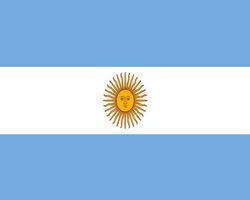The Argentine peso fell 11% against the US dollar on Thursday, its largest one-day drop in twelve years, i.e. since the country’s 2002 financial crisis when it defaulted on $95 billions’ worth of debt.
The official rate is now 8 pesos to the dollar, while unofficially it stands at thirteen to the dollar.
The Banco Central de la República Argentina, the country’s central bank, has been trying to support the floundering currency since the beginning of last year.
It scaled back its intervention this week in a bid to hold onto its dwindling international reserves.
In 2013, Argentina’s currency reserves fell by 31 percent to $29.4 billion, making it progressively harder to support the peso. International reserves are currently at a 7-year low.
Central Bank may not intervene anymore
Phillip Blackwood, a managing partner at EM Quest Capital LLP, who oversees $3.5 billion in emerging market assets, said in a telephone interview with Bloomberg News “They’re running out of cash and they’re sitting in the corner at the moment. There’s a feeling in the market that they’re not going to intervene anymore.”
Chief of the Cabinet of Ministers of Argentina, Jorge Capitanich, said that the government is not going to intervene in the peso’s fall, allowing the market to adjust to prices. He said that market forces should decide what happens, even though most Argentines have no access to dollars.
Argentina in the midst of rising inflation
The majority of Argentines and investors at home and abroad have lost confidence in the country. After implementing several different strategies to support the economy, inflation has increased to at least 25% per year.
In 2014, inflation is expected to exceed 30%. According to official figures, inflation is much lower. However, most Argentinians and economists around the world do not believe government data.
Runaway inflation and dwindling confidence in the country’s economy and the competence of the authorities encourages investors to sell pesos and buy dollars, which further aggravates the country’s problems.
This week, President Cristina Fernández de Kirchner introduced legislation restricting online shopping. Customers purchasing goods from abroad at international websites now have to sign a declaration and produce documents at a customs office to collect their goods. Citizens are limited to two tax-free purchases each year.
The devaluation is a dramatic u-turn for President Kirchner, who promised she would not allow the Central Bank to stand by and watch the peso depreciate. She had said that allowing the currency to slide makes the poor poorer and the speculators richer (“esa medida hace más pobre a los pobres y más ricos a los especuladores”).

